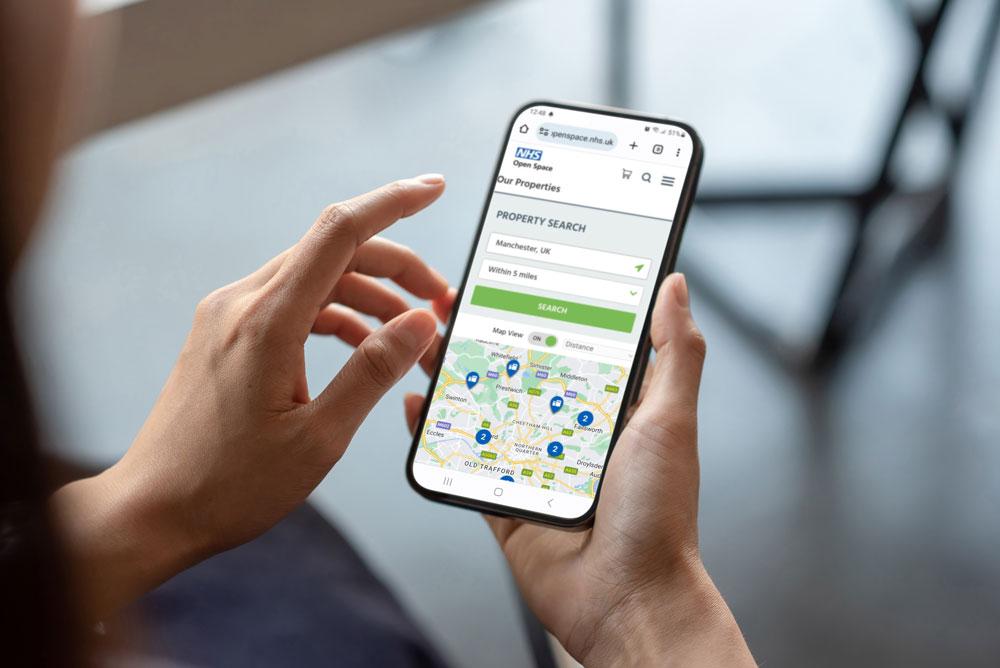Sarah Greenslade, content and research manager at the British Parking Association looks at some of the top issues in hospital parking at the moment.
New government, new priorities?
Before taking a deep dive into some basics of good hospital parking management, let’s reflect on having a new government.
Unlike the previous government, it chose to stay clear of mentioning hospital parking in its manifesto.
It may well have looked at Scotland and Wales and seen the chaotic impact of free hospital parking there. Or noted Northern Ireland’s recent U-turn on making it free.
And in a response to the first parliamentary question on NHS staff parking, minister of state at the Department of Health and Social Care, Karin Smyth has said "there are no plans to abolish parking charges for National Health Service staff."
Hopefully progress can now be made on policy areas in abeyance. For example, that ministers will see the wider context outside the "four virtual walls" of trust car parks. Refocus on sustainable transport planning and invest in technology to improve the parking experience.
Safety, accessibility and staff welfare
Demand for parking spaces may outstrip supply at nearly all trusts, however there are some essential basics that need to be in place.
This is a behind the scenes look into three; safety, accessibility, and parking staff welfare, all of which underpin good parking management.
Disabled parking
At a recent British Parking Association (BPA) workshop for trust parking and transport members Kerry Wheat, chair of the BPA Healthcare Group and head of security and car parking at Manchester University NHS Foundation Trust, asked attendees three questions: What are your biggest challenges and projects? What are your plans for the next 12 months? and what are the gaps in your wider understanding of parking?
Disabled parking and Blue Badges were raised for all three. Specifically, Blue Badge control and fraud, trialling Blue Badge schemes and understanding the national and regional guidance on disabled parking.
Wheat said: “This came as no surprise. We have seen a big increase in applications for disabled parking, mostly from staff at our trust. The added challenge we have is that new buildings tend to be built close to the existing buildings, impacting the number of disabled parking bays. It is so important we fulfil our obligations in providing disabled parking, so we will work closely with our estates colleagues and boards to ensure this.”
Wheat has now set up a BPA working group to create a much-needed user guide on managing disabled parking.
Phil Whale, security and car parking manager at Northern Lincolnshire and Goole NHS Foundation Trust says: “The trust has over 25,000 Blue Badge registrations and we are processing between 700-800 a month. We used to allow up to five cars to be registered against each Blue Badge but reduced this to one when we had one case where all five cars were on site.”
Blue Badge scheme
This increase in demand for disabled parking reflects the rise in blue badge applications to local authorities. Last year it rose by six percent to 2.6 million.
The Disabled Motoring UK (DMUK), a charity that represents disabled motorists is concerned at the lack of oversight on the abuse and misuse of blue badges.
It points out that in the last two years the Department for Transport has not published the Blue Badge prosecutions and only a few local authorities investigate and prosecute for blue badge fraud. This perfect storm threatens the integrity of the Blue Badge scheme itself.
Blue Badge fraud
Trusts are welcome to join the National Blue Badge Day of Action.
This initiative started by Tom Gallagher, deputy head of parking at the London Borough of Lambeth, started three years ago to tackle Blue Badge fraud. This May 142 councils inspected 202,000 vehicles and 10,000 badges, detecting 423 offences.
If trusts worked with their local authority to help enforce blue badges and educate motorists to respect disabled bays, it would improve the lives of genuine blue badge holders.
Accessible parking accreditation Reducing Blue Badge fraud and misuse also helps the integrity of a UK-wide accessible and inclusive parking and EV charging accreditation.
Last year the Disabled Motoring UK and the BPA launched Park Access, and now 1,000 car parks have the award. These car parks along with those that have Park Mark accreditation are audited by BPA area managers and form part of the Safer Parking Scheme.
Currently 40 trusts hold 300 Park Mark awards between them, signalling to their car park users that safety and security is taken seriously.
Staff welfare
Marc Yearling, travel plan coordinator at East Suffolk and North Essex NHS Foundation Trust says “Our parking problems have more or less stemmed from [parking] capacity issues. But recently our parking attendants have been receiving quite a lot of abuse.”
With nothing in particular changing with the trust’s parking arrangements, Yearling is at a loss to understand why, “The abuse has got far, far worse. The compliance of people parking on site, the kindness - all seems to be going out the window and it’s the Band 2 parking attendants taking the flack. The majority of complaints on people’s conduct is staff.”
Given this, Yearling is happy to report ways the trust is helping staff on early and later shifts by adjusting the barrier-controlled staff car park opening times.
“The entry barrier to a late shift car park is now closed between 6.30am and 9.30am, giving staff arriving for work after 9.30am, a better chance of finding a space. Similarly, an early shift staff car park is now open half an hour earlier from 6:30am, which avoids staff queuing before 7am. The trust’s communications department has been helpful too.
"The weekly newsletters include reminders for staff in non-patient care roles to use the free staff Park & Ride and shuttle bus services. And remind everyone that the trust’s parking attendants are colleagues, and that the parking rules are in place to manage demand.” Yearling is hopeful colleagues’ behaviour will improve acknowledging that “The parking staff are doing a difficult job under difficult circumstances.”
Sadly a recent BPA member survey into the abuse of parking staff revealed the scale and seriousness of it is widespread.
The majority of the survey’s 22 organisations and 77 individual respondents were ‘very concerned about abuse levels’ against their staff/themselves.
The BPA has created new resources to help address this. There is now also better protection by law for all public facing workers who are assaulted under the Police, Crime, Sentencing and Courts Act 2022, which few people are aware of.
Safety and security
Whale at North Lincolnshire and Goole NHS Foundation Trust, lists an array of security measures it has in place from new CCTV, at least 10 patrols a day (six of which are at night), help buttons and car parks that have Park Mark and Park Access.
Whale said: “Bike theft continues to be an issue so we’re experimenting with attaching labels to bikes, a bit like luggage labels, to raise security awareness. It tells the owner that it is inadequately secured, causing an obstruction, or abandoned, and to contact security otherwise it will be removed in 14 days.
"We’re also building up a good working relationship with Humberside police. Community officers come on-site regularly and have their own hot desk to use but disappointingly we’re finding the police responses can vary hugely in emergencies.”
An enthusiastic biker himself, Whale is keen to point out it has just invested in more dedicated secure motorcycle bays.
Ultimately getting parking; safety, accessibility and staff welfare right, requires everyone to be respectful of each other, to observe the parking rules and for Blue Badges holders to use them properly.
What’s new in parking?
The DfT’s National Parking Platform (NPP) is a digital parking hub, joining hundreds of parking sites into one system. It’s connecting parking apps and payment methods drivers use, and making it easy for parking operators to sell parking online. It’s now grown to ten local authority members, with customers clocking up ten million parking transactions. Some trusts have already expressed an interest in joining the NPP, after local authorities have been onboarded.
New Parking Code of Practice
Any trust that manages its parking through a private operator needs to be aware it will be adopting a new Code of Practice by October 2024.
The Code, published in June by the BPA and the International Parking Community (IPC) serves to raise standards and transparency. It includes an Appeals Charter, mandates a 10-minute grace period and clear parking signage.





